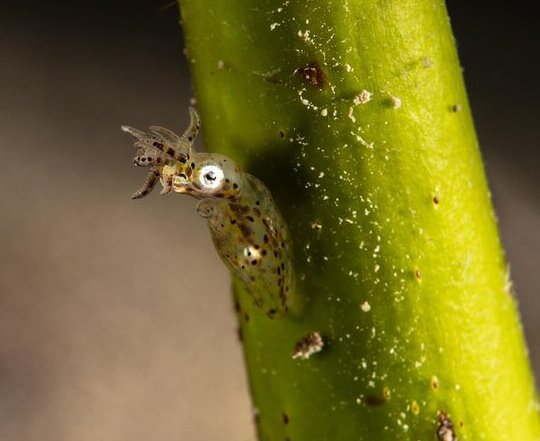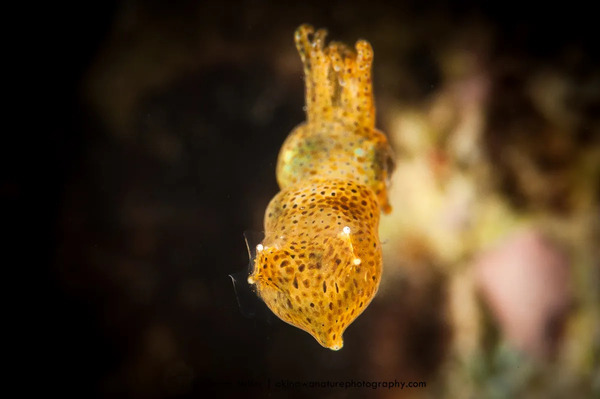In the rich tapestry of wildlife, two intriguing entities stand out: the Kodama jujutsu, rooted in Japanese folklore, and the Idiosepius kijimuna, a remarkable pygmy squid. This article delves into their unique characteristics, their discovery, and their significance within their respective ecosystems.

Kodama jujutsu refers to the mythical Kodama spirits in Japanese culture, believed to inhabit ancient trees. According to folklore, these spirits protect the forests, and harming a tree where a Kodama resides is thought to bring misfortune. These ethereal beings are often depicted as small, ghost-like figures, symbolizing the deep respect and reverence for nature in Japanese society. Their stories encourage harmony with the environment, emphasizing the interconnectedness of all living things.
In a recent study published in March 2024, researchers focused on the Kodama jujutsu, highlighting its importance in forest ecosystems. This initiative sheds light on how traditional beliefs can inform modern conservation efforts, encouraging sustainable practices that protect both the spirits and the forests they inhabit.
Shifting our focus from the mystical forests to the ocean, we encounter the Idiosepius kijimuna, a tiny species of pygmy squid discovered in 2004. This remarkable creature, measuring just a few centimeters, is one of the smallest squid species worldwide, primarily found in shallow coastal waters around coral reefs and sandy bottoms.

Idiosepius kijimuna is known for its incredible ability to camouflage, changing color and texture to blend into its environment. This skill helps it avoid predators while hunting for small marine organisms like shrimp and zooplankton. Their playful behavior includes “dancing” displays, which are particularly prominent during mating rituals, showcasing their vibrant colors as a means of communication.
The Idiosepius kijimuna plays a vital role in marine ecosystems. As a predator, it helps regulate populations of small prey, while simultaneously serving as a food source for larger fish. This interconnectedness underscores the significance of every species in maintaining ecological balance. Moreover, the Idiosepius kijimuna acts as an indicator species, reflecting the health of its marine environment, which is crucial for monitoring coastal ecosystems.
Both Kodama jujutsu and Idiosepius kijimuna embody the complexity of our natural world. The Kodama symbolizes the spiritual connection between humans and nature, urging respect and protection for forests. In contrast, the Idiosepius kijimuna highlights the wonders of marine life, emphasizing the need for ocean conservation.
By understanding these unique creatures, we gain insight not only into their worlds but also into broader environmental issues. The combination of mythology and scientific discovery enriches our appreciation for biodiversity and the importance of protecting it.
In summary, the Kodama jujutsu and Idiosepius kijimuna, though vastly different, both reflect the beauty and intricacy of nature. They remind us of the critical need for conservation and the respect we owe to the creatures with whom we share our planet. Whether through the enchanting tales of Kodama or the playful antics of the Idiosepius kijimuna, we are constantly reminded of the magic inherent in the natural world.
The concept of Kodama has been integral to Japanese folklore for centuries, representing a long-standing cultural connection to nature. The Idiosepius kijimuna was officially discovered in 2004, showcasing the ongoing exploration of our planet’s biodiversity. The recent research published in March 2024 further emphasizes the relevance of traditional beliefs in modern conservation efforts.
As we learn about these extraordinary species, it’s crucial to take action. Support conservation initiatives in both forests and oceans, educate others about the importance of biodiversity, and engage in local efforts aimed at preserving natural habitats. Together, we can ensure that both the Kodama jujutsu and Idiosepius kijimuna thrive for future generations, celebrating the rich diversity of life on Earth.
animal tags: squid
We created this article in conjunction with AI technology, then made sure it was fact-checked and edited by a Animals Top editor.